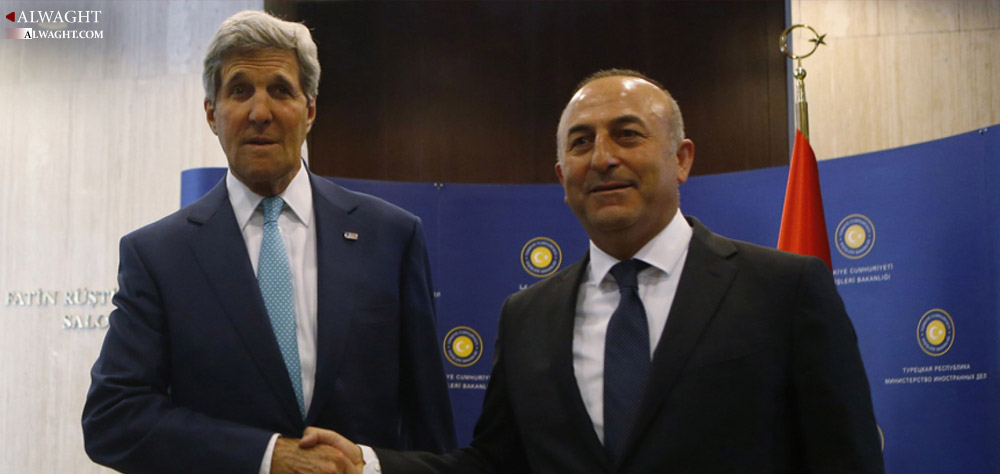Alwaght-Turkey has been pushing for the United States to be invited in the upcoming Syrian peace talks in Kazakhstan's capital Astana.
Speaking to reporters at the 9th Ambassadors' Conference in the capital Ankara, Turkish Foreign Minister Mevlut Cavusoglu said that officials from Turkey, Russia, and Iran met in Moscow Friday in preparation for January 23 Syrian peace summit in Astana.
He insisted that the US will take part in the talks, claiming that both Tehran and Moscow have agreed on the issue. Russia has rejected reports that Washington has been invited to the meeting aimed at restoring peace in war-torn Syria.
Kremlin spokesman Dmitry Peskov said Monday that the US was not invited to intra-Syrian talks in Astana. "Preparations for Astana talks are continuing. It is a difficult process," Peskov told reporters.
Peskov pointed out that Astana talks were not an "alternative" for other formats, including the Geneva process, rather it was "supplementary". About a question on whether US President-elect Donald Trump's administration was invited to the talks, Peskov replied with an emphatic "No". Meanwhile, sources close to the Iran’s foreign ministry have also rejected Turkish officials' claims that Tehran, Moscow and Ankara have reached an agreement to invite the US to the Astana talks on Syria.
Turkey using US to counterbalance Russia, Iran
The Turkish government has been pushing for US involvement in Astana talks on Syria as a way of counterbalancing Iran and Russia. The authorities in Ankara feel they will be isolated in the upcoming talks as both Moscow and Tehran share similar views and stances on the Syrian issue. By insisting on US participation, Turkey wants to achieve what it failed to achieve in the Syria battle field. The government of President Bashar Assad, backed by Iran and Russia, has been able to deal major blows to terrorist groups backed by Turkey and Western countries.
Turkey mending fences with US
US ties with Turkey during outgoing President Barack Obama’s administration have been significantly weakened with President Recep Tayyip Erdogan saying in mid-November last year that he is disillusioned by Ankara-Washington ties. Several military and diplomatic decisions by Washington have irked the Erdogan’s government chief among them being the US backing of Kurdish paramilitary forces and refusal to extradite US-based cleric Fethullah Gulen. Turkey believes he was behind last July attempted military coup in the country. By inviting the US to Astana talks on Syria, Turkey hopes to endear itself to the new Trump administration and persuade Washington to align itself with Ankara’s stances in the region.
Assuring Syrian rebels, opposition
Turkey, which has over the last years been a major supporter of Syrian opposition groups, rebels and terrorists, has over the past few months appeared to get closer to Iran and Russia, countries which have openly backed the government of President Assad.
Therefore, by maintaining that US needs to partake in the Astana talks, Ankara seeks to reassure Bashar Assad opponents that he has not entered into an alliance with Russia and Iran.
Indeed, there are reports that the recent inhuman acts by terrorists who disconnected and contaminated Damascus water supply was directed by Turkey as a way of having an extra bargaining chip during the upcoming Astana Talks.



























